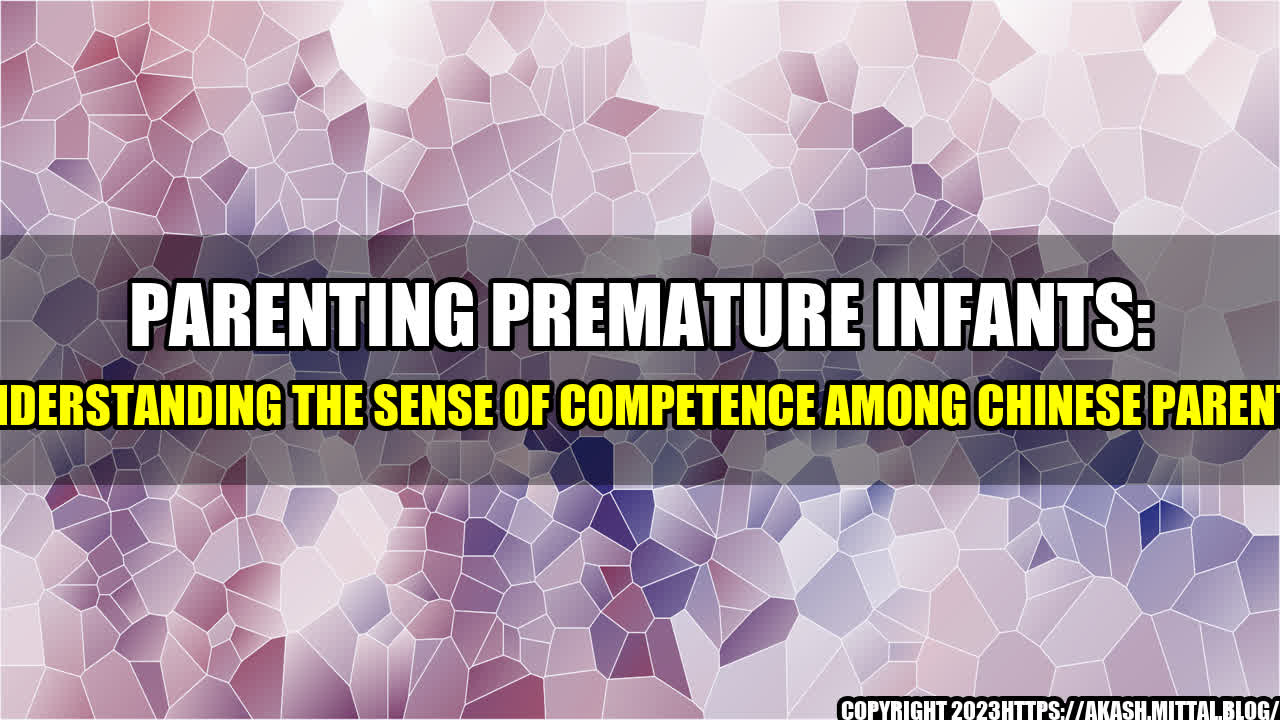

Every parent desires to raise their child with utmost care and provide the best environment for them to thrive in. What happens, then, when a child is born prematurely, and the parent feels as though they cannot care for their child properly? Such is the case for many Chinese parents of premature infants as they face a sense of incompetence in their ability to parent their child. While this feeling is common among many parents, especially first-time parents, it's important to understand how the Chinese culture plays a role in exacerbating this sense of incompetence and how it affects child-rearing practices and ultimately impacts the child's development and overall health.
Competence, in this context, refers to a parent's sense of ability to care for their child adequately. Studies have shown that this sense of competence is higher among Chinese parents of full-term infants than those with preterm babies, which is why the topic of this article is crucial.
Furthermore, the Chinese culture places a considerable emphasis on the role of the mother in the child's upbringing, particularly during the neonatal period. Chinese mothers are expected to be the primary caregiver and provide adequate care for the child; hence, the sense of incompetence can be especially distressing for mothers of premature infants.
Research conducted in China and other Asian countries shows that parents of premature infants have lower self-efficacy, which is the belief in one's ability to complete tasks and produce desired outcomes. Additionally, these parents tend to show higher levels of depression and anxiety, which often affects their ability to care for their child adequately.
A study published in BMC Pediatrics found that Chinese parents of premature infants had significantly lower parenting sense of competence (PSoC) scores compared to parents with full-term infants. The researchers explored some possible factors that could contribute to this result, including parental age, educational level, and household income. They hypothesized that parents with lower income and education levels would report lower PSoC scores, but this wasn't the case. However, parents of younger infants (less than one month old) and those with a history of medical complications reported significantly lower PSoC scores.
When the parents' sense of competence is low, child-rearing practices could be negatively affected. This could result in a lack of attention and stimulation that the child needs for optimal growth and development. Some of the outcomes of inadequate care for preterm infants include poor growth and development, increased risk of illness, and impaired cognitive development. Additionally, parental stress and anxiety could affect the child's overall mood and temperament, which could lead to poorer emotional and behavioral outcomes.
Here are some tips that Chinese parents of premature infants could implement to help improve their sense of competence:
Chinese parents of premature infants often face a sense of incompetence that could negatively affect child-rearing practices. It's crucial to shed light on this issue and provide practical tips to improve parenting sense of competence and ultimately impact the child's development positively. As a society, we must come together to support parents of preterm infants towards providing the best possible environment for their child to thrive.
Curated by Team Akash.Mittal.Blog
Share on Twitter Share on LinkedIn